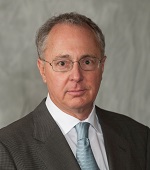 |
| Merck R&D chief Roger Perlmutter |
When Roger Perlmutter exited an early "retirement" from Amgen ($AMGN) to join Merck ($MRK) as head of R&D two years ago, he was going back to a company with one of the weakest R&D records in Big Pharma. One of his first chores was to execute a major restructuring, aimed at slimming down the pharma giant's multibillion-dollar R&D budget. And he simultaneously hit the accelerator on the PD-1 drug Keytruda, which won a pioneering FDA OK last year.
That's all paid off handsomely for Perlmutter. Today's proxy from Merck puts the R&D chief's annual compensation in 2014 at $8.2 million, up from $6 million in 2013. His salary ($1 million in 2014) and bonus ($500,000) didn't change much in terms of the total. But his stock award jumped from $2.7 million to $3.5 million while his incentive plan almost tripled, growing from $623,700 to $1.8 million.
Of course, he also worked the full year in 2014.
Perlmutter's compensation won't raise many eyebrows in the circles he travels. Regeneron's ($REGN) top-paid R&D chief George Yancopoulos earned $81.55 million in 2012, a record sum CEO Leonard Schleifer (2014 compensation $41 million) counts as well spent. This past year Yancopoulos earned a more modest, yet still chart-topping, $35 million in total compensation. 2013's number two R&D chief, Novartis's Mark Fishman, earned $8.81 million, but his compensation dropped to $6.2 million in 2014, according to the proxy.
Merck's boss, CEO Ken Frazier, earned $25 million last year, almost twice the $13.3 million he posted in 2013,
There has been a definite change of tune at Merck's R&D shop during Perlmutter's tenure.
In the spring of 2013, when Perlmutter returned to Merck, the company was struggling with a string of setbacks. The Schering-Plough merger has never paid off as it was billed to. Its big deal to acquire Sirna for more than a billion dollars ultimately proved an embarrassing bust and the assets were later sold for a fraction of what they cost. The biosimilars business had to be restructured. And late-stage drugs like sugammadex--now in the process of being rejected for the third time--weren't offering any comfort.
Aside from Keytruda, a PD-1 effort that Perlmutter has called a pipeline in its own right, Merck has also lost and then reestablished bragging rights to the FDA's "breakthrough" drug title for its hepatitis C combo, though analyst forecasts on potential revenue have been sliding after the initial OKs in the field for Gilead ($GILD) and AbbVie ($ABBV).
- here's the proxy
Special Report: Science pays: 2013's 10 best-compensated R&D chiefs in biopharma - Roger Perlmutter